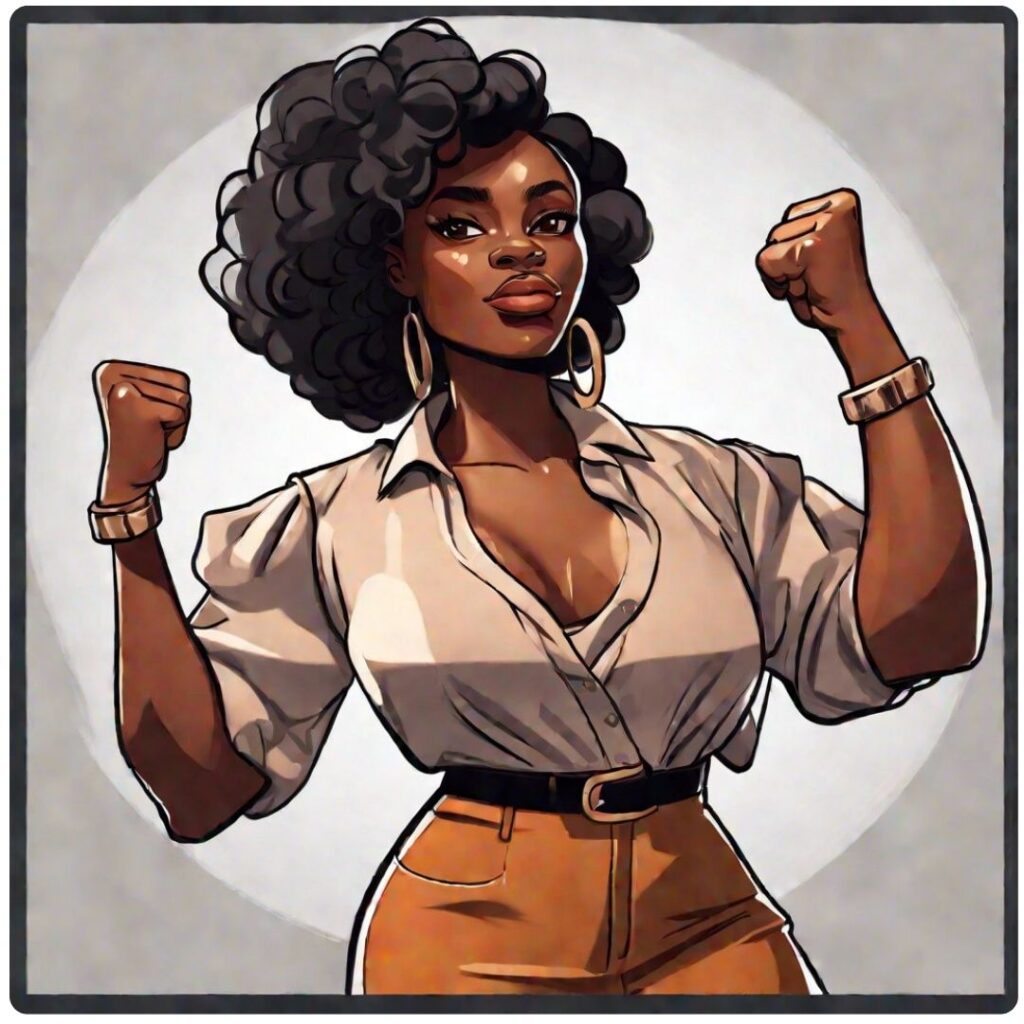Do you ever feel caught between walking away or standing your ground?
Last week, my husband said something that struck a nerve. He described my “emotional default” as throwing my hands up—surrendering instead of standing firm.
To him, it looked like giving up.
To me, it felt like survival.
His words lingered. They stirred something in me that I couldn’t shake. Was I letting go too often? Was I retreating from necessary conflict under the guise of protecting my peace?
This inner tug-of-war—the decision to surrender or stand firm—is one of life’s most vulnerable and personal struggles.

Hands Up: When Surrender Is an Act of Self-Preservation
There are moments I’ve thrown my hands up—not in defeat, but in deliberate self-preservation. Surrender, for me, has often meant protecting my energy. It’s knowing when to walk away from battles that threaten to cost me more than I can afford to give.
I’ve chosen silence in conversations that felt like landmines. I’ve bitten my tongue when speaking might have led to more harm than healing. I’ve stepped back from conflicts that felt more like walls than bridges.
Some people see those choices as weakness. But for me, surrender has been about prioritizing my sanity over proving a point.
Still, there’s a quiet danger in constant surrender.
What happens when letting go becomes a habit?
When self-preservation turns into self-silencing?
I think about the times I stayed quiet even when my boundaries were crossed. Told myself it wasn’t worth the fight. Swallowed my truth in the name of peace—only to feel the sting of unspoken words echoing afterward.
Surrender is powerful. But it comes with questions.
Did I walk away because it was wise—or because it was easier?

Fists Up: The Courage to Fight for Yourself
Then there’s the other side: fighting.
My husband’s words challenged me—not to fight him, but to examine what it means to fight for myself. To raise my fists, not in rage, but in love. To protect my boundaries with intention, not aggression.
Throwing my fists up, metaphorically, is not about winning. It’s about defending what makes me whole.
Fighting means saying no when I’m at capacity, even if it risks disappointment. It means using my voice, even when it shakes, because my needs matter too. It means standing in discomfort instead of hiding behind silence.
I remember the time I finally said no at work—no to one more task, no to stretching myself thin. I was terrified of seeming incapable, but in that moment, I wasn’t fighting the job—I was fighting for my well-being.
Fighting doesn’t mean starting conflict. It means protecting the sacred spaces where my self-worth and peace reside.

The Hardest Decision: When to Surrender and When to Stand
The most difficult part isn’t always how to surrender or how to fight.
It’s knowing when.
Sometimes walking away feels like giving up.
Sometimes standing firm feels like opening the door to more pain.
When I’m unsure, I ask myself:
- Does this challenge my values or my boundaries?
- Will walking away protect my peace—or help me avoid discomfort?
- Is the emotional cost of this fight worth what I’m fighting for?
If surrender brings relief and lightness, it may be the right choice.
But if it leaves me feeling small or erased, standing firm might be the way forward.
Surrender isn’t always weakness.
Fighting isn’t always strength.
Each choice requires courage. Each carries its own weight.

Reflection: How Do You Handle Conflict?
Have you ever walked away and later wondered if you gave up too soon?
Or stood your ground, only to feel the emotional toll it took?
This is the quiet dilemma we all carry: the longing to protect our peace without losing ourselves.
For some of us, walking away feels safer—but it often comes with the ache of what was never said.
For others, standing firm feels necessary—but sometimes it costs more than we expected.
Both choices take bravery. Both demand trust in your own judgment.

Empowered Peace
What I’ve come to believe is this:
Surrender and fighting are not opposites. They are companions. Tools. Languages of self-respect.
Surrender isn’t giving up—it’s choosing where not to waste your energy.
Fighting isn’t violence—it’s standing in the sacred ground of your own value.
Peace isn’t passive. It’s built. Brick by brick. Choice by choice.
Sometimes peace is walking away.
Sometimes peace is stepping forward, into the fire, with your voice intact.
But no matter the direction, it begins with one truth:
You are worthy of protecting your heart, your boundaries, and your joy.
These days, I see peace not as a soft place to land—but as a fortress I build.
With hands up.
With fists up.
And most of all, with purpose.

- Where do you need to surrender?
- Where do you need to stand your ground?
- And can you trust yourself to know the difference?
Thank you for reading and visiting the blog—I’m grateful to share this space with you. The accompanying design by Vibe Graphix adds a thoughtful touch to this message. Take what resonates, let go of what weighs you down, and embrace your journey toward clarity and freedom. 💛
